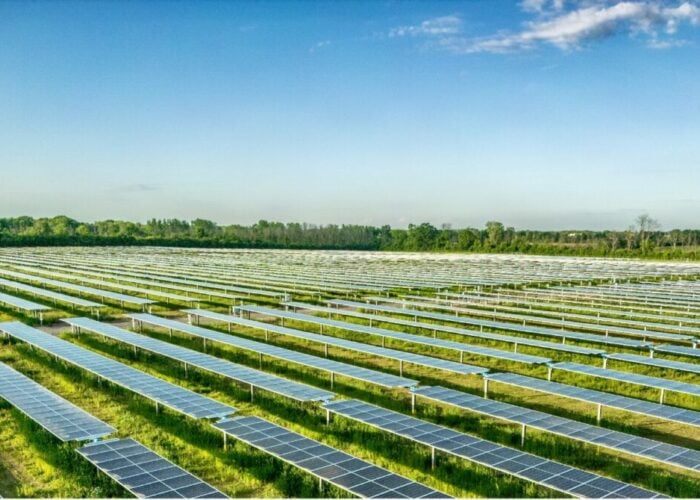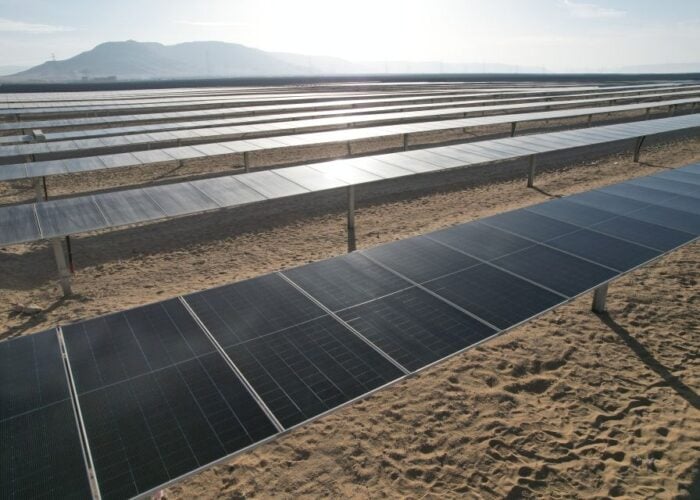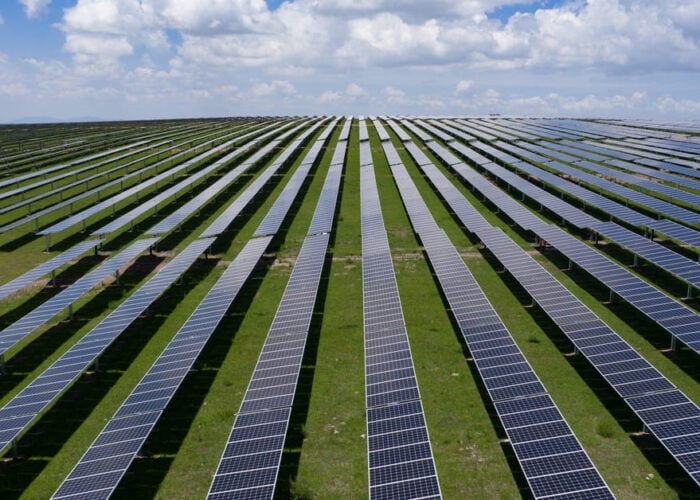Norway's oil-generated sovereign wealth fund is to see a shift to investment in renewable energy.
The prime minister, Erna Solberg said the Government Pension Fund Global (GPFG) would aim to focus 5% of its NOK5,000 billion (US$800 billion) on renewables investment.
Try Premium for just $1
- Full premium access for the first month at only $1
- Converts to an annual rate after 30 days unless cancelled
- Cancel anytime during the trial period
Premium Benefits
- Expert industry analysis and interviews
- Digital access to PV Tech Power journal
- Exclusive event discounts
Or get the full Premium subscription right away
Or continue reading this article for free
An official announcement, detailing the 5% mandate, is expected on 4 April. A white paper on the oil fund is also to come out in April.
Currently the Norges Bank Investment Management (NBIM), which manages the citizen-owned fund, discloses its investment strategy as 60% equity, 35% fixed income and 5% in real estate.
Out of the 60% equity investments, oil and gas accounts for 8.4%, or US$44 billion, according to the fund’s annual report.
The current average return on investments for the fund is 5.7%.
Yngve Slyngstad, the oil fund’s chief executive, told the Financial Times newspaper: “This is the people’s money. It’s the people’s representatives in the parliament who decide the main aspects of the fund and decide what they ultimately do or do not want to be invested in.”
The debate on Norway’s fossil fuel investment ratcheted up in headlines after a council for reviewing the funds investments was instated in February.
The ‘Responsible Investment and the GPFG’ 2013 report, written by leading economists and academics in November 2013 said: “An increased understanding of risks and opportunities linked to environmental, social and governance (ESG) issues are expected to lead to better investment decision making.”
According to official Norwegian investment promoter, Invest in Norway, in 2010 the Norwegian renewable energy sector comprised 2,000 companies, 50,000 employees, and a revenue of NOK200 billion (US$33 billion).
The inter-governmental Organisation for Economic Co-operation and Development (OECD) recently published an economic survey of Norway, released 5 March. The report advised disinvestment in fossil fuels and investment in infrastructure and liquidity.
Norway’s government said in response, as part of a press release on 5 March: “Some first steps were taken already in the budget for 2014, where we introduced growth-enhancing tax cuts and redirected spending towards investments in infrastructure and knowledge. I am pleased to see that the OECD supports these efforts”, says the Minister of Finance Siv Jensen.
International economic policy think-tank Re-Define’s managing director, Sony Kapoor, former strategy advisor to the government of Norwary, European Parliament, UN and World Bank said: “Norway has reached a critical point in how its oil wealth is managed.”
Kapoor advised liquid investments, in infrastructure and disinveting in fossil fuels with more democratic and accountable overseeing of the fund.
“It is still too early to say whether the government will go as far as Re-Define suggests in changing the investment strategy of the fund to make it more consistent with the investment objective set by the Parliament, but it is at least moving in the right direction,” he said.
Environmental charity, WWF ran a campaign ‘Det Skjer!’ to encourage Norway’s sovereign fund invest in renewables and disinvestment in fossil fuels.
Nina Jensen, CEO of WWF-Norway said: “The pension fund is the largest state investor in the world. A solid renewable energy mandate will send a tremendously powerful signal and set the standard for other international investors.”
“If done at scale, this will have global impact and redefine how we use money consistent with commitments to limit climate change.”
WWF financial analyst, Lars Erik Mangset said: “The mandate should allow for direct investment in renewable infrastructure where a large scale of capital is urgently needed.”
“We will be looking to see if the government award a mandate to allow up to 5% of the fund to be invested into renewable energy infrastructure and exactly how they extended the fund to invest in real estate.”
Samantha Smith, leader of WWF’s Global Climate & Energy Initiative said: “It is rare that one government alone can bend the curve on climate change. Norway, through its sovereign wealth fund, can.”
“WWF now looks to Norway's leaders to commit to renewable energy investment at a scale that will make a global difference. This will be their legacy, and we are watching.”






